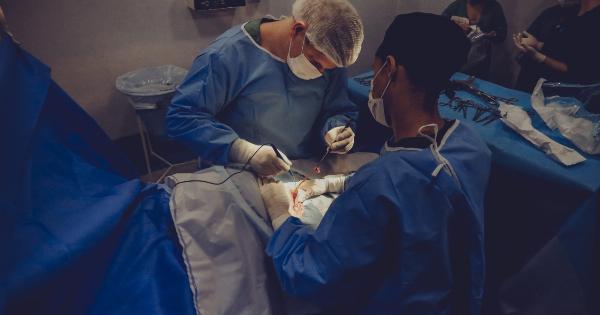Cataract surgery is a common procedure that involves removing the cloudy lens of the eye and replacing it with a clear artificial lens.
After the surgery, it is crucial to take proper care of your eyes to ensure a smooth recovery and optimal visual outcome. In this article, we will provide you with valuable advice from the American Ophthalmology Company on how to care for your eyes after cataract surgery.
1. Follow Your Doctor’s Instructions
One of the most important steps in caring for your eyes after cataract surgery is to follow your doctor’s instructions diligently.
Your ophthalmologist will provide you with a detailed set of post-operative instructions tailored to your specific needs. It is crucial to adhere to these instructions to promote healing and minimize the risk of complications.
2. Take Prescribed Medications
Your doctor may prescribe eye drops or other medications to prevent infection, reduce inflammation, and aid in the healing process. Make sure to use these medications as directed and continue taking them for the prescribed duration.
If you experience any side effects or have concerns about the medications, contact your ophthalmologist immediately.
3. Use Protective Eyewear
Wearing protective eyewear, such as sunglasses or eyeglasses with UV protection, is essential after cataract surgery. These types of eyewear help shield your eyes from harmful UV rays and promote healing.
Your ophthalmologist may recommend wearing them both indoors and outdoors, especially during the daytime.
4. Avoid Rubbing or Touching Your Eyes
Although you may feel tempted to rub or touch your eyes, it is crucial to avoid doing so after cataract surgery. Rubbing or touching your eyes can introduce harmful bacteria and lead to infection or other complications.
If you experience any itching or discomfort, consult your doctor for appropriate relief methods.
5. Rest and Relax
After cataract surgery, it is normal for your eyes to feel tired and strained. Taking ample rest and avoiding strenuous activities can help promote healing and prevent unnecessary strain on your eyes.
Avoid activities such as heavy lifting, bending over, or engaging in exercises that require intense eye movements for the first few weeks following surgery.
6. Maintain Good Hygiene
Keeping your eyes clean and practicing good hygiene is crucial during the recovery period. Wash your hands thoroughly before touching or applying any eye drops.
Avoid using makeup, eye creams, or any products near your eyes unless approved by your eye doctor. Maintaining good hygiene helps prevent infection and promotes the healing process.
7. Attend Follow-up Appointments
Regular follow-up appointments with your ophthalmologist are essential for monitoring your progress and addressing any concerns.
Your doctor will schedule these appointments to check the healing process, monitor your vision, and make any necessary adjustments in your treatment plan. Make sure not to miss these appointments and communicate any changes in your vision or symptoms to your ophthalmologist.
8. Protect Your Eyes from Injury
During the recovery period after cataract surgery, it is important to protect your eyes from potential injuries. Avoid activities that may involve contact with your eye or expose it to dust, dirt, or chemicals.
If you engage in sports or other activities where eye injury is likely, consult your doctor for appropriate protective measures.
9. Maintain a Balanced Diet
A nutritious diet plays a vital role in overall eye health and healing. Include foods rich in vitamins and minerals, such as leafy greens, citrus fruits, fish, and nuts, in your diet.
These nutrients are known to support eye health and promote faster healing. Additionally, staying hydrated is crucial for maintaining good eye health.
10. Be Patient
Recovering from cataract surgery takes time, and every individual’s healing process may vary. Be patient with your recovery and avoid comparing your progress with others.
If you have any concerns or questions about your recovery, reach out to your ophthalmologist for guidance and reassurance.
Conclusion
Proper care after cataract surgery is essential for a successful outcome and optimal eye health.
Following your doctor’s instructions, taking prescribed medications, using protective eyewear, and maintaining good hygiene are crucial steps to promote healing and prevent complications. By taking these measures and being patient with your recovery, you can ensure the best possible vision and overall eye health after cataract surgery.





























